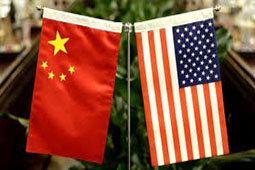
US delays new tariffs on China after deal: Update 2

The two governments have yet to review the agreement, which will not be finalized and signed until early January. Averting a round of tariffs covering an additional 30pc of the volume of US imports from China, which were scheduled to take effect on 15 December, is the only concrete outcome of the deal. But even that limited result is substantial.
Scrapping the December round of tariffs on imports from China would be the equivalent of a 0.2 percentage point boost to global GDP growth next year, based on analysis by IMF economists earlier this year. Crude futures rose in trading today following the news of the agreement, on top of gains yesterday.
If an agreement is signed, the US will lower the tariff rate on roughly 20pc of the volume of US imports from China to 7.5pc from 15pc. The remaining half of US imports from China will continue to be taxed at a 25pc rate, with President Donald Trump holding out the prospect of reducing or removing it during a subsequent "phase two" round of talks. The trade war between two countries, which has remained a drag on oil demand outlook, is far from being over.
The interim agreement includes commitments by Beijing to purchase $50bn of agricultural commodities and another $200bn worth of energy and manufactured products and services in the next two years, a senior US administration official said today. The US will not disclose details on purchase commitments, "because if the numbers get out it will affect markets and business proprietary information," the official said.
The amount cited by the US means China will more than double its imports from the US from 2018 levels. Bilateral trade shrank this year because of tariffs imposed by both sides.
Chinese commerce ministry officials at a briefing today declined to confirm details of agricultural and energy-specific purchase commitments. Previously announced agreements, which later failed, also promised Chinese purchases of US commodities. Beijing also did not disclose how it plans to match the reduction in the US tariff rate.
Retaliatory tariffs imposed by Beijing cut off exports of most energy commodities from the US to China. But China is importing US crude, even with a 5pc tariff in effect since August.
"This is movement in the right direction for LNG and hopefully will help rekindle the relationship between China and the US when it comes to trade in natural gas," industry group LNG Allies president Fred Hutchison said.
"We urge both countries to continue working toward a final agreement that completely lifts tariffs on both sides," American Petroleum Institute (API) senior adviser Aaron Padilla said.
API previously had urged the administration not to include oil and other US energy commodities in specific purchase commitments in talks. And many LNG exporters have offered similar advice out of concern that it would leave the booming US LNG industry hostage to future complications in bilateral relations.
Trump hailed the agreement as a validation of his tough trade policy approach, even though the prize of signing it with Chinese president Xi Jinping eluded him. US trade representative Robert Lighthizer and Chinese vice premiere Liu He will sign the phase one deal instead, at a yet-to-be-determined location.
"This is a very large deal. It covers tremendous manufacturing, farming, a lot of rules, regulations. A lot of things are covered," Trump said.
The US Trade Representative's office said the phase one agreement will address many of the core complaints the US has had about Beijing's trade policies and will include a strong enforcement mechanism.
Disagreement over the enforcement mechanism scuttled the previous attempt to close a deal in April.
By Haik Gugarats


Trump weighs using $2 billion in CHIPS Act funding for critical minerals

Codelco cuts 2025 copper forecast after El Teniente mine collapse

Electra converts debt, launches $30M raise to jumpstart stalled cobalt refinery

Barrick’s Reko Diq in line for $410M ADB backing

Abcourt readies Sleeping Giant mill to pour first gold since 2014

Nevada army depot to serve as base for first US strategic minerals stockpile

SQM boosts lithium supply plans as prices flick higher

Viridis unveils 200Mt initial reserve for Brazil rare earth project

Tailings could meet much of US critical mineral demand – study

Kyrgyzstan kicks off underground gold mining at Kumtor

Kyrgyzstan kicks off underground gold mining at Kumtor

KoBold Metals granted lithium exploration rights in Congo

Freeport Indonesia to wrap up Gresik plant repairs by early September

Energy Fuels soars on Vulcan Elements partnership

Northern Dynasty sticks to proposal in battle to lift Pebble mine veto

Giustra-backed mining firm teams up with informal miners in Colombia

Critical Metals signs agreement to supply rare earth to US government-funded facility

China extends rare earth controls to imported material

Galan Lithium proceeds with $13M financing for Argentina project

Kyrgyzstan kicks off underground gold mining at Kumtor

Freeport Indonesia to wrap up Gresik plant repairs by early September

Energy Fuels soars on Vulcan Elements partnership

Northern Dynasty sticks to proposal in battle to lift Pebble mine veto

Giustra-backed mining firm teams up with informal miners in Colombia

Critical Metals signs agreement to supply rare earth to US government-funded facility

China extends rare earth controls to imported material

Galan Lithium proceeds with $13M financing for Argentina project

Silver price touches $39 as market weighs rate cut outlook

















